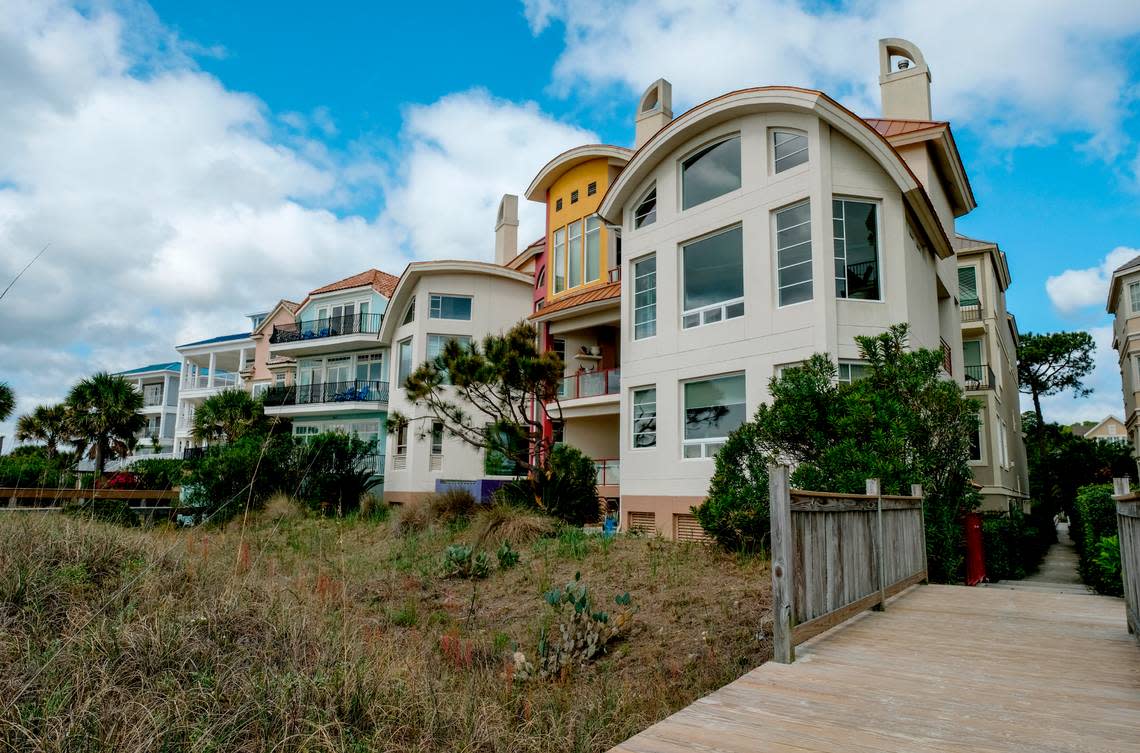Short-term rental owners divided over Hilton Head’s new regulations going into effect Jan. 1
Hilton Head’s new short-term rental ordinance was set to take effect Jan. 1, and property owners who rent across the island have shared their feedback, from cries of government overregulation to acceptance that something should be done to curb bad renters.
At the turn of the year, the town’s new ordinance will require short-term rental owners on Hilton Head to purchase a $250 permit for each property they rent for less than 30 days. Those who rent properties on their own or through a platform like Airbnb must also acquire a business license.
The ordinance is the first time the town has stepped directly into regulating short-term rentals on Hilton Head. With around 7,000 short-term rentals listed on Hilton Head in October, according to AirDNA, the industry is one of the island’s most lucrative. Town officials have previously said the sheer number of short-term rentals and conversion of units previously rented long-term has contributed to the island’s rising housing costs.
Island resident Mark Spurling has rented secondary properties short-term for seven years and said the regulation is necessary, despite disagreeing with government involvement generally.
“I would like to say that government doesn’t need to get involved and let this just be a transaction between a renter and owner, but one of those two parties is dropping the ball, so the town had to step in,” Spurling said.
Beyond licenses and fees being required — along with the 10% combined tax from state and local tax laws — the ordinance outlines safety and aesthetic requirements.

The owner or short-term rental agent must be available at all times by phone and able to be on-site or take “responsible action” within an hour of receiving a complaint. Trash storage must be fenced or screened to be invisible from the street, and parking spaces must be 9- by 18-foot “improved surfaces,” prohibiting parking on grass or straw.
The entirety of the ordinance is available on the town website.
Spurling said, ultimately, the ordinance should encourage renters to vet leasees more thoroughly to avoid renting to tourists who disturb neighbors. Property owners can’t control what renters might do, Spurling said, but can stymie bad behaviors through security deposits and fines.
“It holds the homeowner responsible, and ultimately, that’s really who is responsible, right? They kind of had it easy there for a long time, because they would just kind of raise their hands up and say, ‘Wasn’t us, it was the rental,’” Spurling said. “Now it makes the owner of the property responsible. They can no longer just say, ‘Hey, it wasn’t us.’”
But other property owners, particularly those who live off Hilton Head, said the ordinance is a burden on non-permanent residents who already pay greater property taxes than permanent residents.

“I agree with all of the things we’re doing here to make our neighborhoods much more fun and (have) a lot less problems,” one non-resident speaker at a recent ordinance information session said. “I agree with all the things that we’re doing, but ... it seems to me like taxation without representation.”
“Everybody complains about short-term rental people, and a lot of times they don’t realize that those short-term rental people are making their cost to live on this beautiful place a real bargain,” the speaker said. The speaker declined to be identified for this article.
Other island residents have expressed concerns online that the ordinance punishes smaller rentals for the actions of “party homes,” when some short-term properties are already regulated by neighborhood codes or property owners’ associations.
“Is it a perfect solution? I don’t know,” Spurling said. “But I think something needed to be done. While I do derive revenue and income from that industry, the negative impacts ... it’s just not what’s best for the community or specific neighborhoods.”

